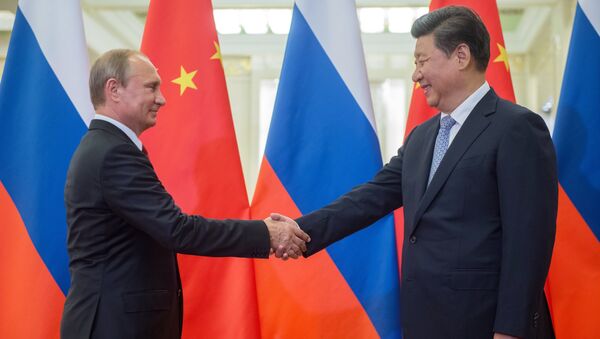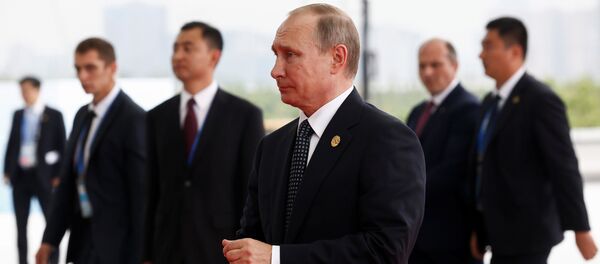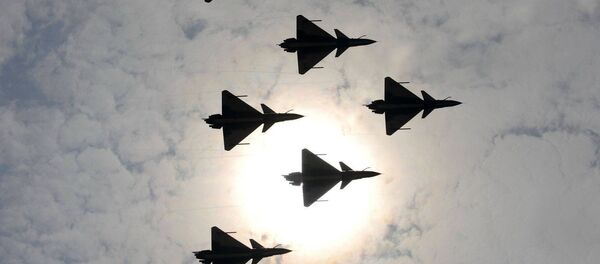"De facto a political and military alliance between Russia and China has existed for a long time and it is not a secret to anyone," Ishchenko, head of the Center for Systems Analysis and Forecasting, wrote for RIA Novosti. "Rumors have repeatedly surfaced that it could be formalized. But at the recent G20 summit the Chinese leader has for the first time mentioned the need to 'formalize relations' as openly as Chinese political and diplomatic traditions permit."
Ishchenko suggested that Xi's comments point to Beijing's wish to "formalize the already existing relations and mutual obligations." The analyst further said that both countries could even sign an agreement "simply because both sides are interested in one."
The analyst maintained that China's overtures of friendship should be viewed in a larger geostrategic context. On the one hand, the United States is losing its international clout. These changes, he said, are already taking place. Moreover, "they must be evident to Southeast Asian nations, since they do not care about Washington's failures in Syria as long as the US is capable to do anything it wishes in the Asia Pacific," he explained.
Washington's tensions with Beijing over the South China Sea are also a factor.
Russian President Vladimir Putin met with Japanese Prime Minister Shinzo Abe last week in Vladivostok. Although no breakthrough was reached, both sides were optimistic that a compromise could be reached.
"A rapprochement between Russia and Japan is a challenge not only for the US, but also China. Beijing and Tokyo have traditionally competed for the leading role in Southeast Asia," the analyst observed.
China has nothing to worry about as long as relations between Russia and Japan remain strained. This appears to be no longer the case.
"This is why Beijing wants to transform an informal bilateral political and military alliance that is meant to protect both countries from America's hegemonism to formal obligations that would guarantee mutual assistance not only against the US, but also its allies," the analyst suggested, adding that for China this is primarily Japan.
These geostrategic trends have prompted Ishchenko to say that the process of formalizing relations between Russia and China will be "complicated, but a treaty will eventually be signed."



